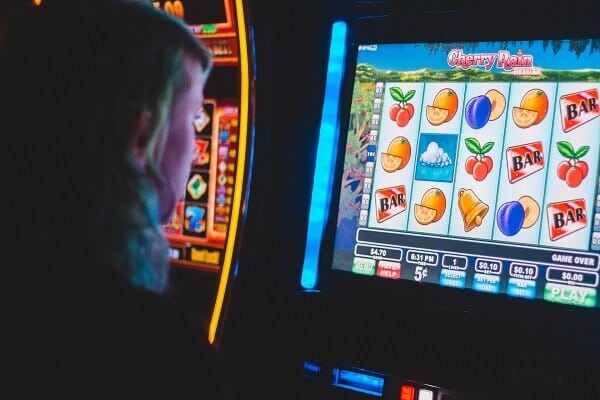The pandemic of Covid-19 left no industry untouched. While travel agencies struggled more, digital realms like online gambling seemed less hindered. With lockdowns tethering individuals to their homes, digital solutions became the new normal. This shift boosted the industry's growth, although it brought its own set of challenges leading some governments to introduce changes. BetSquare's team delved deep into statistics and insights to gauge COVID's imprint on online gambling. iGaming How the Health Crisis Catalyzed Online Gambling
Impact of COVID-19 on Online Gambling
Last update: February, 2025

COVID-19 undoubtedly flipped the script for countless industries, compelling them to pivot more online. As a result, online gambling platforms thrived, letting players indulge in games, make transactions, and snag bonuses all from their couches.
But these changes in turn affected gambling habits. Easier access can mean higher risks of addiction. In the UK, for instance, 350,000 individuals were impacted, whereas in Australia, 160,000 were affected. Thus, iGaming had to pivot, focusing primarily on responsible gambling and healthy industry evolution.
The pandemic reshaped gambling tendencies worldwide, driven mainly by boredom and blues. With extra time on hand, seasoned gamblers browsed, explored new games, and played whenever they felt a tinge of ennui.
Is Online Gambling More Addictive?
Another evident catalyst for the online surge was the shuttering of land-based casinos and sports betting venues. Traditional gamblers had to seek new avenues, often leading to increased addiction:
In the UK, 1.2% of gamblers grappled with addiction, while in sports betting, this shot up to 2.5% (prompting the UK government to restrict credit-fueled online gambling)
- Unlike their brick-and-mortar counterparts, online platforms offer a vast array of games without waiting times for specific events
- Tracking time spent gambling online is slippery, as one can log on anywhere, anytime
- The sheer number of online casinos is overwhelming, posing challenges for players to navigate
- To address these issues, the online gambling space steps in with responsible gaming tools and rules. Players find these resources on their casino's official site and can access professional organizations for free support.
When gambling behaviors exceed healthy boundaries, it spirals into what we call gambling addiction—a scenario where players lose grip over their spending and time. Such addicts face myriad issues, spanning financial woes to strained relationships and tangled legal concerns.

Impacts of a Gambling Addiction
Gambling can also shadow mental health, leading to depression and anxiety. Tragically, gamblers caught in addiction are six times more prone to contemplate suicide. Hence, it’s crucial to recognize this issue early and seek professional intervention.
It's crucial to realize that not every online casino player is an addict, even if they picked up gambling amidst the COVID-19 era. That said, if certain habits become glaring, it’s time for a pause and maybe some help. Consider these queries:
Do You Have a Gambling Addiction?
Do you chase your losses by placing more bets?
- Have you repeatedly tried quitting gambling but couldn't?
- Do only high-stakes bets thrill you now?
- Are your financial headaches tied to your gambling?
- Do you gamble to escape problems or chill out?
- Has the time you spend gambling started growing?
- Should your answers lean towards a ‘yes,’ it’s high time to recalibrate your gambling mindset and potentially seek professional aid. Begin by managing your time and money—perhaps gamble just once a week with a fixed budget. If this doesn’t suffice, considering reaching out to organizations like GamCare, and ask your casino manager about self-exclusion options.
It's honest to say the COVID-19 pandemic reshaped the gambling landscape significantly. The industry's expansion was remarkable, enabling influxes of new digital platforms. More players discovered the perks of online gambling as opposed to physical venues. Thus, it nudged online gaming into a space that's more enticing and accessible.
Conclusion
Conversely, COVID-19's impact nudged a spike in gambling addiction. Predominantly, new players who hadn't considered gambling before were unaware of potential pitfalls. Coupled with depression and monotony, the ramifications of this shift remain mixed and call for industry actors and players alike to ensure these issues grow less frequent.
Did the wellbeing crisis of COVID-19 sway the iGaming industry?
FAQ
Absolutely, the pandemic had a profound influence. It notably fueled the growth of the online gambling market, though it also unraveled complications concerning gambling behaviors.
Will the realm of online gambling keep expanding?
Indeed, according to iGaming specialists, the infrastructure and audience demand are robust enough to propel the online gambling domain further.
What steers responsible gambling practices?
At the core is players’ own control over their time and finances. Furthermore, many online gambling venues feature aids like self-exclusion, empowering players to opt-out when needed.
Try your luck with the new slot from Stakelogic






















